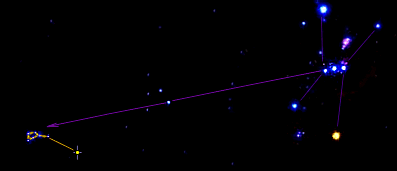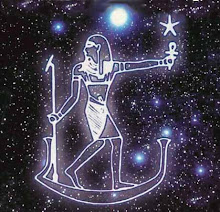
And Abram said unto himself 'Surely these are not gods (Enki and Enlil) that made the earth and all mankind, but these are the servants of Yahweh! Book of Jasher Chapter IX: 19.
Zecharia Sitchin is a brilliant author and contemporary Ufologists. He is the author of several very popular new age books reporting his polytheistic interpretation of Sumerian, Biblical, and Egyptian history.
He states that the Sumerian account of the origin of civilization predates that of the Biblical record and implies that it is therefore a more accurate report of our origins.
He implies in his book, "Divine Encounters", that the Hebrew account in Genesis of the creation of man is an inferior record of the origins of man and was primarily plagiarized by Moses from the Sumerian cuneiform clay tablets and the Epic of Gilgamesh.
He suggests that Yahweh may be interpreted as the Hebrew expression of the gods of Sumeria Enki or Enlil. He maintains a polytheistic view of the gods os Sumeria and the Jews. He further goes on to attempt to establish that Yahweh may be in fact Enlil the Sumerian demigod.
And the story of Man's Divine Encounters, the subject of this book, is so filled with parallels between the biblical experiences and those of encounters with the Annunnaki by other ancient peoples, that the possibility that Yahweh was one of 'them' must be seriously considered. pg. 347
The question and its implied answer, indeed, arise inevitably. That the biblical creation narrative with which the Book is beyond dispute. pg. 347
That the biblical Eden is a rendering of the Sumerian E.DIN is almost self evident. pg. 347
That the tale of the Deluge and Noah and the ark is based on the Akkadian Atra-Hasis texts and the earlier Sumerian Deluge tale in the Epic of Gilgamesh, is certain." pg. 347
That the plural 'us' in the creation of The Adam segments reflects the Sumerian and Akkadian record of the discussions by the leaders of the Anunnaki that led to the genetic engineering that brought Homo sapiens about, should be obvious. pg. 347
Indeed, in the very tale--the tale of the Deluge--where the identification of Yahweh with Enki appears the clearest, confusion in fact shows up. The roles are switched, and all of a sudden Yahweh plays the role not of Enki but of his rival Enlil.
In the Mesopotamian original texts, it is Enlil who is unhappy with the way Mankind has turned out, who seeks its destruction by the approaching calamity, and who makes the other Annunaki leaders swear to keep all that a secret from Mankind. pg. 350 & 351
While claiming to have drawn his conclusions that Yahweh was one of the Sumerian Gods by having read the Book of Jasher, then he states that the Sumerian history substantiates his view that Yahweh is the "b'nai Elohim.
Joshua 10:13 refers to the Book of Jasher, which is also listed as a known source text in II Samuel 1:18. These are but passing references to what must have been a much more extensive trove of earlier texts. pg. 5.
The Books of Nathan and Gad have vanished, as did other books--the Book of the Wars of Yahweh, the Book of Jasher, to mention two others--that the Bible speaks of...They all provide a wealth of insights into the nature and identity of Yahweh. pg.330
True, the Book of Jasher does provide a wealth of insights into who Yahweh really is, it also provides clear evidence that Yahweh is not the god of the Sumerians. He is not Enki, Enlil or Thoth. Yahweh is the creator God. The Great IAM!


